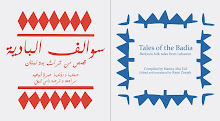Food and religion go back a long way. In preislamic times known to Muslims as al Jahiliyya (the times of ignorance), arabs used to make statues of their gods from ripened dates (tamr) and eat them when they got hungry. This is the best use of deity I know.
Syrian poet Nizar Qabbani used the image in his eulogy of Nasser:
"Fana7nu shou3ouban minal Jahiliyya
Noubayi3ou arbabana fis sabah
Wa na2koulahoum 7eena ta2ti 'l 3ashiyya"
This is from memory and the last time I read it was when Nasser died, so I may have changed a couple of words. But the general meaning is there. It translates roughly as
We are loyal to our gods in the morning
And we eat them when the evening comes"
Then Judaism, Christianity and Islam started regulating people's lives and made them jump through food hoops: No shellfish, no pork, no meat on certain weekdays, fasting in all possible permutations.
And sure enough, in the new age of foodies and return to the roots, religion is carving itself its own little niche: faith-based agricultural movements. NYT reports:
"Many of the ideas in the faith-based agriculture movement were expressed 30 years ago by advocates of eco-kashrut, a Jewish environmental consciousness movement. Jewish groups like Kosher Conscience in New York and blogs like the Jew & the Carrot, which is sponsored by Hazon, are still in the forefront. Two years ago the W. K. Kellogg Foundation, which has long been involved in agriculture issues, gave the Alliance for Jewish Renewal a two-year, $200,000 grant to start the Sacred Foods Project, which developed ethical guides to food buying.
For some religious people, change starts from the ground up, beginning with the way they treat the land. Dr. Adnan Aldayel, a Saudi Arabian financial consultant living in New Rockford, N.D., runs what he believes is the nation’s only organic halal producer, Dakota Halal. “We try to raise our animals the proper way, the right way,” he said. “We are the custodians of the ground.”
Environmentally sensitive farming has been taken up by at least 50 orders of nuns in the United States and Canada. Their number has increased about fivefold in the past decade, said Sarah McFarland Taylor, who recently published a book about this movement, “Green Sisters: A Spiritual Ecology” (Harvard University Press, 2007)." (thanks D.)
Is the Slow Food movement a new religious movement? Faith in Good?








+081.jpg)



2 comments:
Great title.
It is better to have all the religious loonies grow food than dabble in politics.
Something about turning swords into ploughshares.
'We are loyal to our gods in the morning
And we eat them when the evening comes'
'Take, this is my body'.
Post a Comment